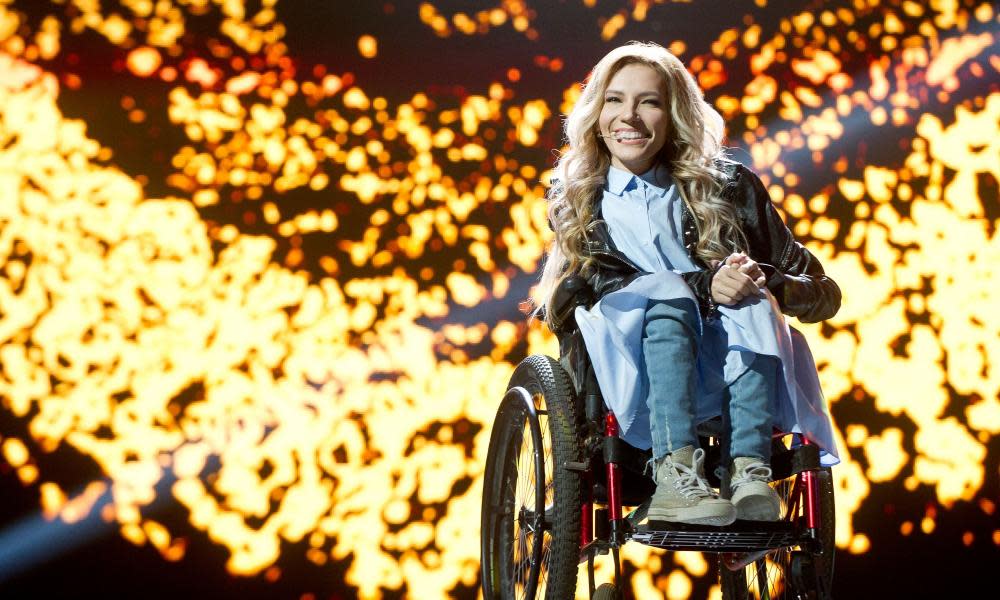Banned Russian singer to perform in Crimea as Eurovision starts

The Russian singer banned from this year’s Eurovision song contest is to give a concert in annexed Crimea on the same day the music tournament starts in Kiev. Ukrainian authorities banned Yulia Samoilova from entering the country because she had travelled to Crimea without receiving permission from the Ukrainian government.
Russia annexed Crimea in 2014, a move that has not been recognised internationally. Thousands of Russians travel to Crimea via Moscow each month, but to do so is a violation of Ukrainian law and carries a three-year ban.
Ukraine has accused Russia of deliberate provocation in selecting Samoilova, who had previously performed a concert in Crimea, and knowing that she would risk incurring a ban.
The European Broadcasting Union, which organises Eurovision, criticised Kiev for the decision, but suggested Russia should send another act or compete via satellite link. Instead, Moscow decided to pull out.
Now it has emerged that Samoilova will give a concert in Sevastopol on 9 May, the day of the first Eurovision semi-final. It is also Victory Day, which marks the Soviet triumph in the second world war and is one of the biggest celebrations in modern Russia.
Samoilova, a wheelchair user since childhood, has criticised the Ukrainian authorities’ decision, and said she plans to apply to compete in Eurovision 2018.
This is the second year in a row that the Crimea issue has dominated Eurovision. Last year, a Crimean entrant representing Ukraine won with a song about the 1944 deportation of the indigenous Crimean Tatar population to central Asia by Soviet authorities. Susana Jamaladynova, who goes by the stage name Jamala, said the song was not only about historical events, but also about the Russian annexation in 2014, which most of the peninsula’s Crimean Tatar population opposed.
Eurovision rules ban all songs with political references, but Jamala was allowed to compete nonetheless. Russia was furious about last year’s result. Konstantin Kosachev, a top foreign policy official, complained that “political attitudes prevailed over fair competition”.
Relations between Russia and Ukraine have been fraught since the annexation of Crimea and war in eastern Ukraine, in which Russia funnelled troops and weapons to separatist forces. Ukraine has banned a number of Russian singers and other entertainers it believes are closely linked to the Kremlin, or who have made statements unfriendly to Kiev.
The Eurovision final will be held on 13 May.

 Yahoo News
Yahoo News 
